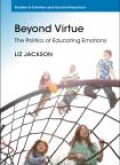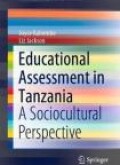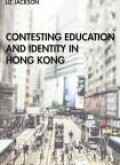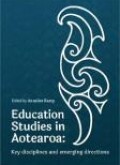News
PESA does not sell or take commission from any of the events listed on this website.
 | Barnett, R., & Bengtsen, S. S. E., Knowledge and the University: Re-claiming Life, (Routledge) 2020For hundreds of years, knowledge has been central in understanding the university. Over recent decades, however, it is the economic value of knowledge that has come to the fore. Now, in a post-truth world, knowledge is also treated with suspicion and has become a vehicle for ideologies. Knowledge and the University combats all these ways of thinking. Its central claim is that knowledge is of value because of its connection with life. Knowledge is of life, from life, in life and for life. |
 | Masamichi Ueno, Yasunori Kashiwagi, Kayo Fujii, Tomoya Saito, Taku Murayama, Manabi and Japanese Schooling: Beyond Learning in the Era of Globalisation, (Routledge) 2020 |
 | Masamichi Ueno, School Reform and Democracy in East Asia, (Routledge) 2021https://www.routledge.com/School-Reform-and-Democracy-in-East-Asia/Ueno/p/book/9781138346048 |
 | Masamichi Ueno, Democratic Education and the Public Sphere Towards John Dewey’s theory of aesthetic experience, (Routledge) 2017 |
 | Jackson, Liz, Beyond Virtue: The Politics of Educating Emotion, (Cambridge University Press: Cambridge) 2020Educating students for emotional wellbeing is a vital task in schools. However, educating emotions is not straightforward. Emotional processes can be challenging to identify and control. How emotions are valued varies across societies, while individuals within societies face different emotional expectations. For example, girls face pressure to be happy and caring, while boys are often encouraged to be brave. This text analyses the best practices of educating emotions. The focus is not just on the psychological benefits of emotional regulation, but also on how calls for educating emotions connect to the aims of society. The book explores psychology's understanding of emotions, 'the politics of emotions', and philosophy. It also discusses education for happiness, compassion, gratitude, resilience, mindfulness, courage, vulnerability, anger, sadness, and fear. |
 | Kahembe, Joyce, and Jackson, Liz, Educational Assessment in Tanzania A Sociocultural Perspective, (Springer: Dordrecht) 2020This book examines teachers’ conceptions and practices of assessment in Tanzania. Adopting a sociocultural perspective, it reveals how Tanzanian teachers understand the role of assessment in relation to their classroom practices, community and other factors. The book determines that although teachers in Tanzania generally consider assessment to be useful for evaluating and monitoring learning, improving student performance and for accountability, their assessment practices are rarely seen as directly supporting student learning; it is not that teachers do not know how to implement the mandated assessment reforms. Instead, they are reluctant to adopt and embrace the reforms because they consider them to be contradictory to their teaching roles, and overly burdensome, if not implausible, given the physical, economic and cultural contexts of teaching and learning. |
 | Jackson, Liz, Contesting Education and Identity in Hong Kong, (Routledge: London) 2021This text examines the intersection of youth civic engagement, identity, and protest in Hong Kong, through the lens of education. It explores how education and identity have been protested in Hong Kong, historically and today, and the mark that such contestations have left on education. Many people, particularly outside Hong Kong, were astonished by youth participation in the Umbrella Movement of 2013–2014, and the anti-extradition law protests in 2019. These protests have caused people to consider what has changed in Hong Kong over time, and what education has to do with youth civic engagement and political expression. |
 | Hager, Paul and Beckett, David, The Emergence of Complexity: Rethinking Education as a Social Science, (Springer) 2019 |
 | Ruyu Hung, Cultivation of Self in East Asian Philosophy of Education, (Routledge) 2019This book provides exciting and significant inquiries into the cultivation of self in East Asian philosophy of education. |
 | Gert Biesta, Obstinate Education: Reconnecting School and Society, (Brill | Sense: Leiden) 2019What should the relationship between school and society be? Obstinate Education: Reconnecting School and Society argues that education is not just there to give individuals, groups and societies what they want from it, but that education has a duty to resist. Education needs to be obstinate, not for the sake of being difficult, but in order to make sure that it can contribute to emancipation and democratisation. This requires that education always brings in the question whether what is desired from it is going to help with living life well, individually and collectively, on a planet that has a limited capacity for giving everything that is desired from it. |
 | Kamp, Annelies, Education Studies in Aotearoa: Key disciplines and emerging directions, (NZCER Press) 2019This book provides a comprehensive introduction to the core disciplines, and contemporary concerns, that inform the study of education in Aotearoa. As a collection, the work provides a critical account of education policy trajectories and speculates on their limits and possibilities in the changing social and political landscape of Aotearoa New Zealand in the first half of the 21st century. https://www.nzcer.org.nz/nzcerpress/education-studies-in-aotearoa |
 | Lund, Birthe & Arndt, Sonja, The Creative University: Contemporary responses to the changing role of the University, (Brill/Sense: Leiden) 2019The concept behind the Creative University is about knowledge cultures, critical creative thinking and innovative learning processes, situating the university as flexible, open and responsive to contemporary educational ideologies. Its vision reflects world-wide interest in students' engagement with diverse knowledges that challenge and break with habitual actions and thought and elevates creativity as central to the design of new and innovative pedagogies. |
